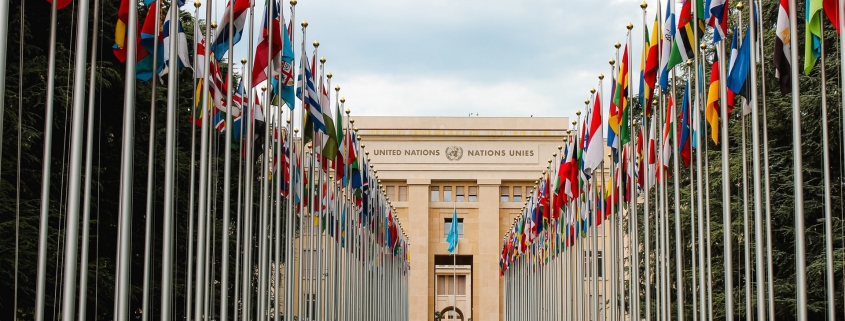What were Dag Hammarskjöld’s contributions?
Topic of Study [For H1/H2 History Students]:
Paper 1: Safeguarding International Peace and Security
Section B: Essay Writing
Theme III Chapter 2: Political Effectiveness of the UN in maintaining international peace and security
About the Secretary-General
Dag Hammarskjöld was a Swedish economist who was appointed as the Secretary-General of the United Nations on 7 April 1953. He was re-elected to serve another term in September 1957. Hammarskjöld was an exemplary diplomat who made remarkable contributions to the international organisation, such as the institutionalisation of peacekeeping and conflict prevention.
The Sino-American hostage crisis: ‘Peking Diplomacy’
Following the end of the Korean War, the Secretary-General visited the Chinese premier Zhou Enlai to secure the release of fifteen American pilots in January 1955. These pilots were captured by the People’s Republic of China (PRC) during the Korean conflict.
Hammarskjöld responded with sympathy to two claims made by Zhou Enlai, namely (1) the argument that communist China had wrongly been denied admission to the United Nations, and (2) criticism by China that the United States had unduly refused to allow Chinese students to return to the People’s Republic of China… But at the end of the talks, (Zhou) agreed to comply with two of the Secretary-General’s requests. He agreed that the People’s Republic of China would comply with the policy terms regarding the treatment of foreign prisoners, announced at Geneva, which implied lenient sentences.
An excerpt from “Peace Diplomacy, Global Justice and International Agency: Rethinking Human Security and Ethics in the Spirit of Dag Hammarskjöld” by Carsten Stahn and Henning Melber.
After the conclusion of the visit, Hammarskjöld described his diplomatic approach as the ‘Peking Formula‘, which referred to his role as the ‘Secretary-General under the Charter of the United Nations and not as a representative of what was stated in the General Assembly resolution’.
Eventually, PRC agreed to release the US airmen, reflecting the success of the Secretary-General’s personal touch in resolving the dispute in spite of the growing Sino-American tensions.
Peacekeeping: UNEF
During the Suez Canal Crisis in 1956, Hammarskjöld conceptualised peacekeeping and applied it to the first UN peacekeeping force – the United Nations Emergency Force (UNEF).
There are three guiding principles of peacekeeping:
- Consent of the parties
- Impartiality
- Non-use of force except in self-defence and defence of the mandate
Ever since, these principles have set the standard for subsequent UN missions.
The most telling aspect of UNEF’s creation, and ultimately the most problematic from the Canadian perspective, was the need to respect Egypt’s sovereignty and obtain Nasser’s consent to place the peacekeeping force on Egyptian territory.
…The speed with which Hammarskjöld was able to organize the peacekeeping mission was nothing short of incredible. By 6 November, in just over two days, he had been able to sketch out the basics of the mission, and less than two weeks later the first troops landed on the ground in Egypt.
An excerpt from “Pearson’s Peacekeepers: Canada and the United Nations Emergency Force, 1956-67” by Michael K. Carroll.
What can we learn from this article?
Consider the following question:
– Assess the political effectiveness of the Dag Hammarskjöld in fulfilling his duties as the Secretary-General of the United Nations.
Join our JC History Tuition and learn more about the organisational structure of the United Nations. The H2 and H1 History Tuition feature online discussion and writing practices to enhance your knowledge application skills. Get useful study notes and clarify your doubts on the subject with the tutor. You can also follow our Telegram Channel to get useful updates.
We have other JC tuition classes, such as JC Math Tuition and JC Chemistry Tuition. For Secondary Tuition, we provide Secondary English Tuition, Secondary Math tuition, Secondary Chemistry Tuition, Social Studies Tuition, Geography, History Tuition and Secondary Economics Tuition. For Primary Tuition, we have Primary English, Math and Science Tuition. Call 9658 5789 to find out more.











